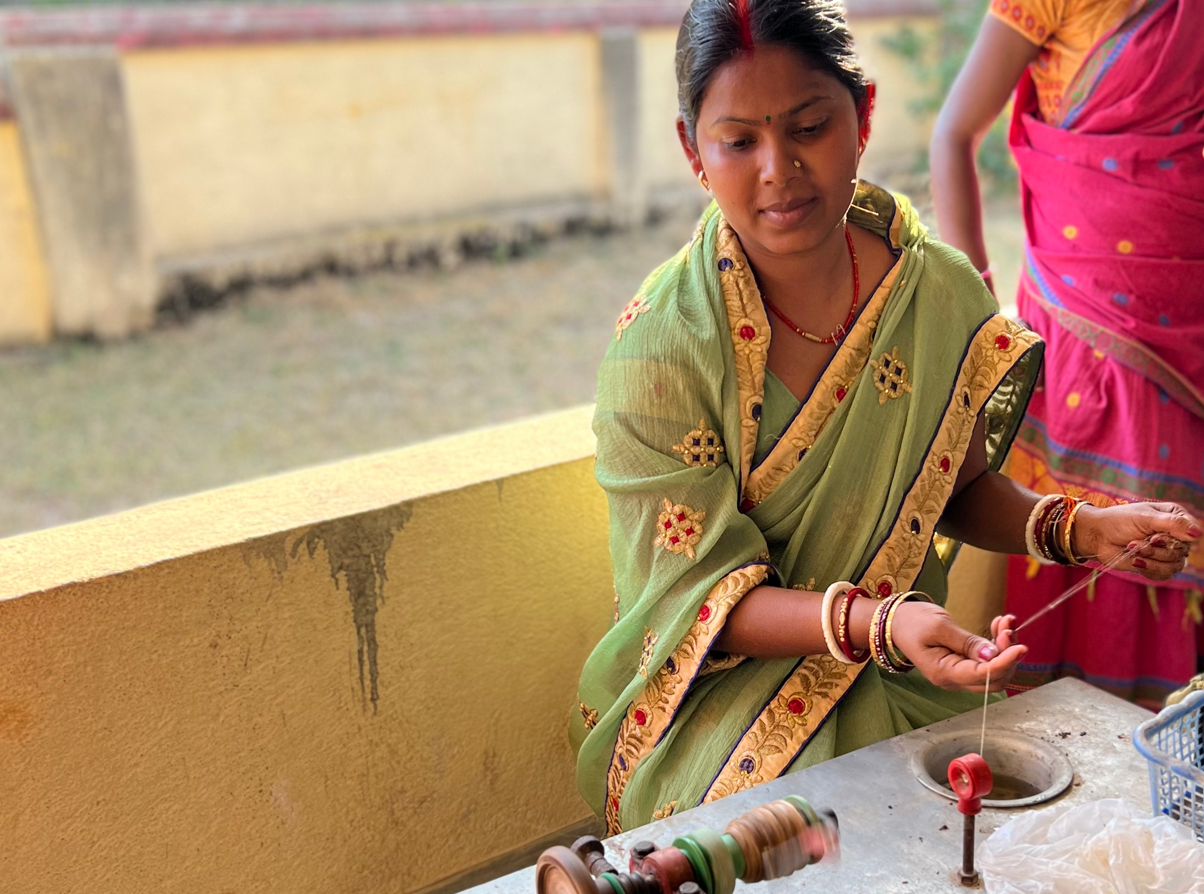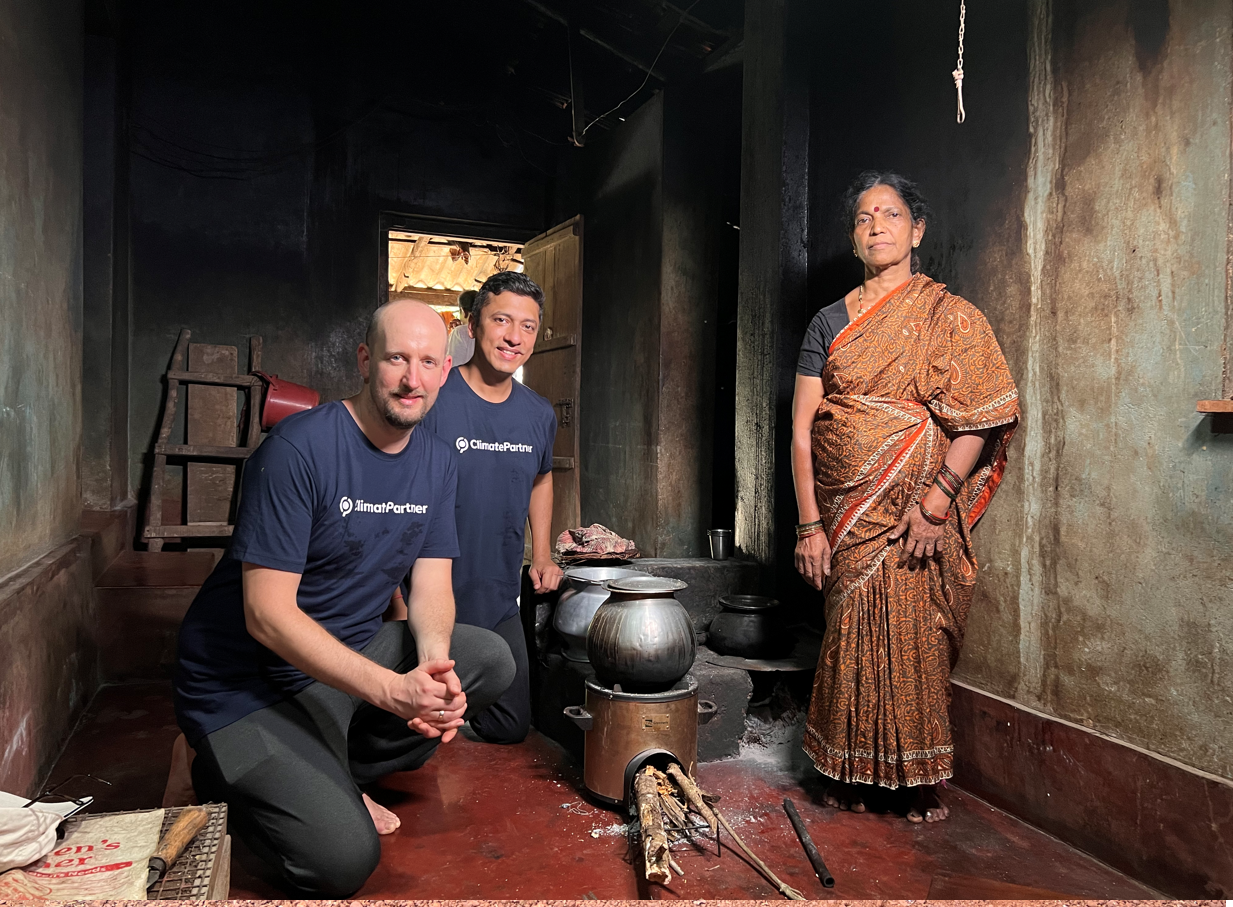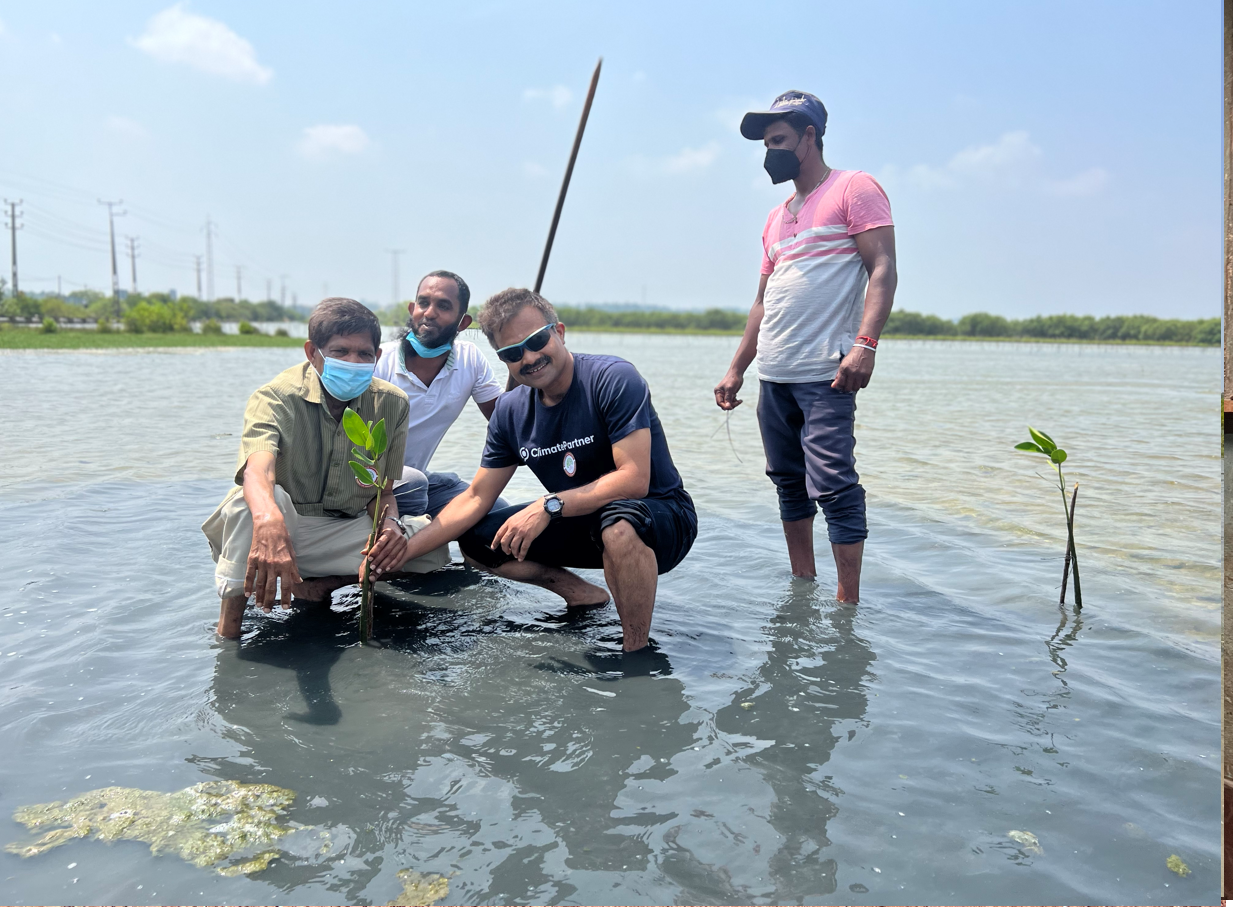Project development firsthand: our carbon offset experts on international assignment
March 30, 2022
Throughout March, our carbon offset project experts - Dr. Sascha Lafeld, Head of Carbon Offset and Green Energy at ClimatePartner, as well as Shuvani Thapa, Nirmal Beura and Bhushan Trivedi - visited various projects in India, Nepal and Sri Lanka. The carbon offset projects are all developed by ClimatePartner in close cooperation with local implementation partners and include a wide range of technologies to reduce CO2 emissions.
Silkworms for climate action
"The exciting thing about our carbon offset projects is that there are many different technologies on how to reduce greenhouse gases. Time and again, the synergy of climate action and sustainable development goals becomes clear," says Sascha Lafeld. "For example, at our afforestation project in Jharkhand, India, with the help of our local partners, we are planting Arjuna trees on land that used to be parched. At the same time, these trees are also home to silk worms. The resulting silk production and processing brings economic stability to the region, which particularly promotes earning opportunities for women. That's an added value that goes far beyond emissions reduction."

Microenergy credits for greater energy efficiency
Bhushan Trivedi also agrees there is more to these projects aside from emissions reductions alone. Bhushan regularly develops projects demonstrating great social impact, and he is especially enthusiastic about his new ClimatePartner project - one which specifically promotes the purchase of energy-efficient products like cooking stoves, solar lights and water filters, by granting microenergy credits. "These products significantly reduce the need for firewood as a high-emission energy source. On one hand, this reduces greenhouse gases; on the other hand, the sale of the products strengthens the local economy and local businesses receive training. At the same time, these energy products provide long-term financial and health relief, and also save time for households. It all meshes together."

Mangrove afforestation
On location in Sri Lanka, Nirmal Beura assessed a very different technology. Here, ClimatePartner is working with local partners to develop a so-called "blue carbon" project to promote the reforestation of mangroves. Almost 80 percent of the mangrove population in this location has been destroyed by war, deforestation and cattle breeding. Despite this great loss, mangroves remain enormously important for the climate and for the population of Sri Lanka. The new project will be certified according to the Verified Carbon Standard and will reforest 4,000 hectares of mangroves across the country, thus taking climate and nature protection a step further with the help of ClimatePartner's financial investment.

Projects with social added value
Shuvani Thapa from the ClimatePartner project development team is also currently on the road: In Nepal, she is traveling to various regions to identify new project development opportunities with high social added value for ClimatePartner. In the future, clean drinking water and efficient cooking stoves should provide relief for households that must currently still travel long distances to gather enough firewood as an energy source. The new projects are also intended to protect health and the climate: Less firewood means less harmful emissions and smoke.
For Sascha Lafeld, project visits like these are indispensable: "Visiting our carbon offset projects is of enormous importance to ClimatePartner. Here we have the opportunity to closely follow the development of our projects, to exchange ideas with our partners on site and to document very transparently how our projects work. In addition, we can see the impact of our projects with our own eyes, talk to project participants and witness how the projects improve their lives. It's great that the opportunity to visit projects is now possible again." And so the next project visit is already planned: In April, the ClimatePartner project development team plans to visit more project initiatives in Asia.